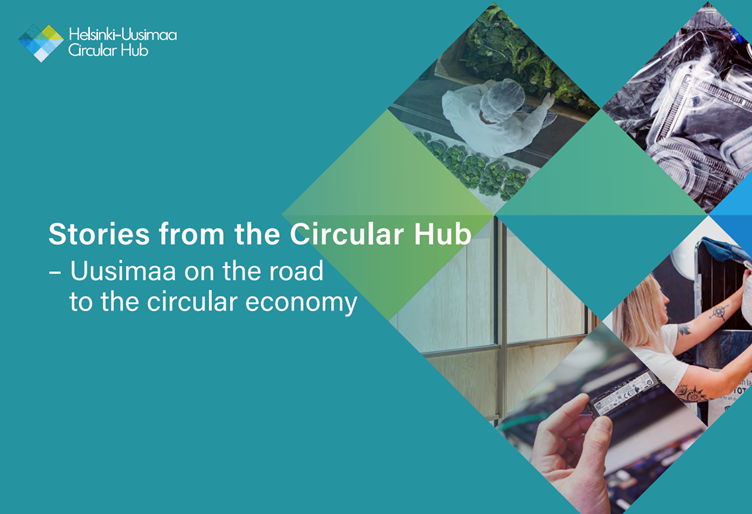New study: up to €40 million business opportunity in concrete waste

VTT was commissioned by the Helsinki-Uusimaa Circular Hub to investigate the material flows and business opportunities of construction and demolition in the region Helsinki-Uusimaa. The results show that the generation of construction waste is strongly concentrated in the metropolitan area.
Waste from demolition activities in Helsinki accounts for about 21% of all construction waste generated in Helsinki-Uusimaa, and is mostly concrete. Currently, most of the concrete waste is recycled as waste in construction and groundworks. The recent study shows that concrete waste created from demolition activities has a especially significant business potential of up to €40 million, which could be realised through recycling and reuse as well as in terms of savings in material costs. Other demolition fractions, such as wood, bricks and internal structures, also have potential for reuse and savings.
– It is important to take advantage of this business potential and more pilots are now needed, for example in intact demolition,” says Malin zu Castell-Rüdenhausen, a circular economy expert at VTT.
The most effective way to save is not to demolish.
The building sector is one of the largest sources of carbon dioxide emissions. One effective way to reduce emissions is to reduce the production of new materials. The most effective way to save is not to demolish: for example, if 25% of buildings were not demolished and rebuilt, 130 kilotonnes of concrete waste would be avoided and €11 million would be saved in concrete use. Construction and demolition flows are key to developing new business based on reuse – saving the value of materials and significantly reducing carbon emissions.
The public sector has an important role to play in supporting business
Changes in the construction sector require support from the public sector. Construction professionals interviewed for the VTT study feel that procurement conditions and procurement expertise can influence business practices and create models for the private sector.
Clearer conditions for selective demolition and higher standards for recycling, recycled materials and re-use could be effective tools. Logistical challenges and zoning factors can also support re-use, which requires temporary storage, short distances between sites and effective coordination between municipalities and businesses.
Helsinki-Uusimaa Circular Hub takes the circular economy forward with businesses
The Helsinki-Uusimaa Circular Hub, which operates under the Helsinki-Uusimaa Regional Council, promotes the circular economy in the region, particularly in the construction, textiles, plastics, food and electronics sectors, in cooperation with local businesses. The results of the construction sector material flow mapping should be used to build new pilots and projects in the construction sector, as well as to strengthen cooperation and create opportunities for different actors to exploit new markets.
Further information:

Pipsa Salolammi
Adviser, Circular Economy
pipsa.salolammi@uudenmaanliitto.fi
Helsinki-Uusimaa Circular Hub, project KOPPI
Malin zu Castell-Rüdenhausen, Senior Scientist, VTT, malin.castell@vtt.fi
Take also a look at these
 News
News
1.7.2025
Helsinki Regional Council committing to green deal agreement: reducing the use of natural resources to the level of 2015
Circular economy is no longer a mere environmental accomplishment - it is also about competitiveness, security of supply and generally, savings. To promote a sustainable resource-wise future, the Helsinki-Uusimaa Regional Council has joined a regional green deal for circular economy. The green deal is a voluntary commitment in which the participating municipalities are offered support for concrete actions and gives them new opportunities to find solutions and start pilot projects.
 News
News
26.6.2025
Stories from the Circular Hub – Helsinki-Uusimaa on the road to circular economy
More and more sectors are now furthering a transition to circular economy. The Helsinki-Uusimaa Circular Hub was an import cooperation platform for circular economy solutions in the Helsinki-Uusimaa Region, founded in 2023. Highlights from the first project years of the Circular Hub have now been put together in the publication Stories from the Circular Hub, raising both the updates of the sectors and the actors of the regional Hub.